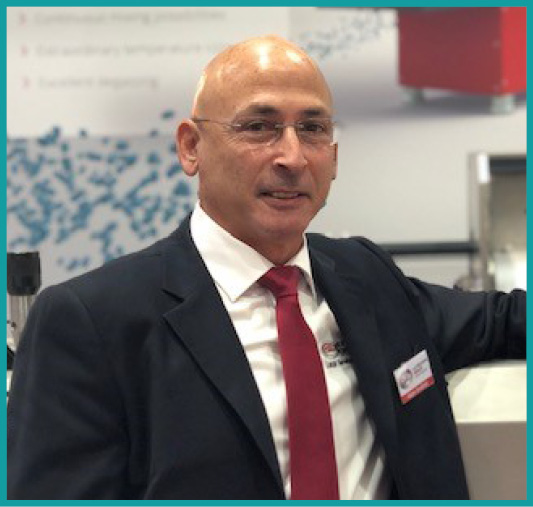Speaker interview: Adam Dreiblatt, CPM Extrusion Group

Ahead of the Compounding World Expo, we caught up with some of the speakers from the free-to-attend conference. In this interview we spoke to Adam Dreiblatt, Director of Process Technology at CPM Extrusion Group.
Adam Dreiblatt is the Director of Process Technology for the CPM Extrusion Group. He provides technical support to CPM internal sales team as well as existing and prospective customers around the world. This includes making technical presentations regarding application of twin-screw extrusion technology; solving customer processing problems; performing scale-up calculations for specification of new machines; conducting machine trials in their own technical centre or at customer’s plant; operator training and new machine commissioning.
Adam will be hosting a training seminar on 'Solving vent problems on twin-screw compounding extruders' at the Compounding World Expo conference theatre.
What are the biggest challenges facing the market today and how can this be overcome?
The anti-plastic movement is responsible for political decisions to ban plastics without scientific evidence (based on social pressures and emotion, driven by images of plastics pollution). Additional pressure to develop “greener” materials are embraced by brand owners and consumers without thinking about the impact of such materials on the recycling infrastructure.
The recycling infrastructure remains segmented; multiple interested parties (i.e. government regulation; recyclers; resin suppliers; converters) each having a very different need. Recycling trade associations are working towards some synergy amongst these groups, however, this will take some time.
In your opinion, what do you consider to be the greatest development in your industry in the last 3 years?
The development of chemical recycling for ‘non-recyclable’ plastics, in my opinion, will grow as more and more ‘green’ policies are implemented to curtail use of plastics. The recycling industry does not consider chemical recycling true “recycling”, but rather a plastics-to-fuel process. New applications/processes for depolymerization and/or pyrolysis of plastic waste will continue to gain popularity and show promise as pilot-scale units come on-stream.
How do you see the sector developing in the next two to five years?
The co-rotating twin-screw extruder remains the work-horse of the compounding industry, invented over 60 years ago. Developments to increase speed and torque have resulted in machinery with high productivity and reliability that can process a wide range of materials. Further developments will focus on machine controls with predictive capability that can be integrated with QC/testing databases to produce consistent products both within-lot as well as lot-to-lot.
You will be speaking at AMI’s plastics industry expos in Europe in September, could you give us a preview on what you will be talking about?
My training seminar on ”Solving Vent Problems on Twin-Screw Compounding Extruders” will explain why so many twin-screw compounding lines are plagued with venting instability (i.e. melt coming out of vent opening) and some solutions to overcome these problems:
- The higher production capacity of modern compounding extruders results in higher levels of volatiles needing to be removed while the size of vent openings remains unchanged.
- Increased utilization of recycled resins produces higher volatile load as compared to virgin resin
- Use of bioplastics and bio-based fillers adds more moisture to the compounding extruder that needs to be degassed prior to pelletizing
See Adam speak at the Compounding World Expo Europe.
